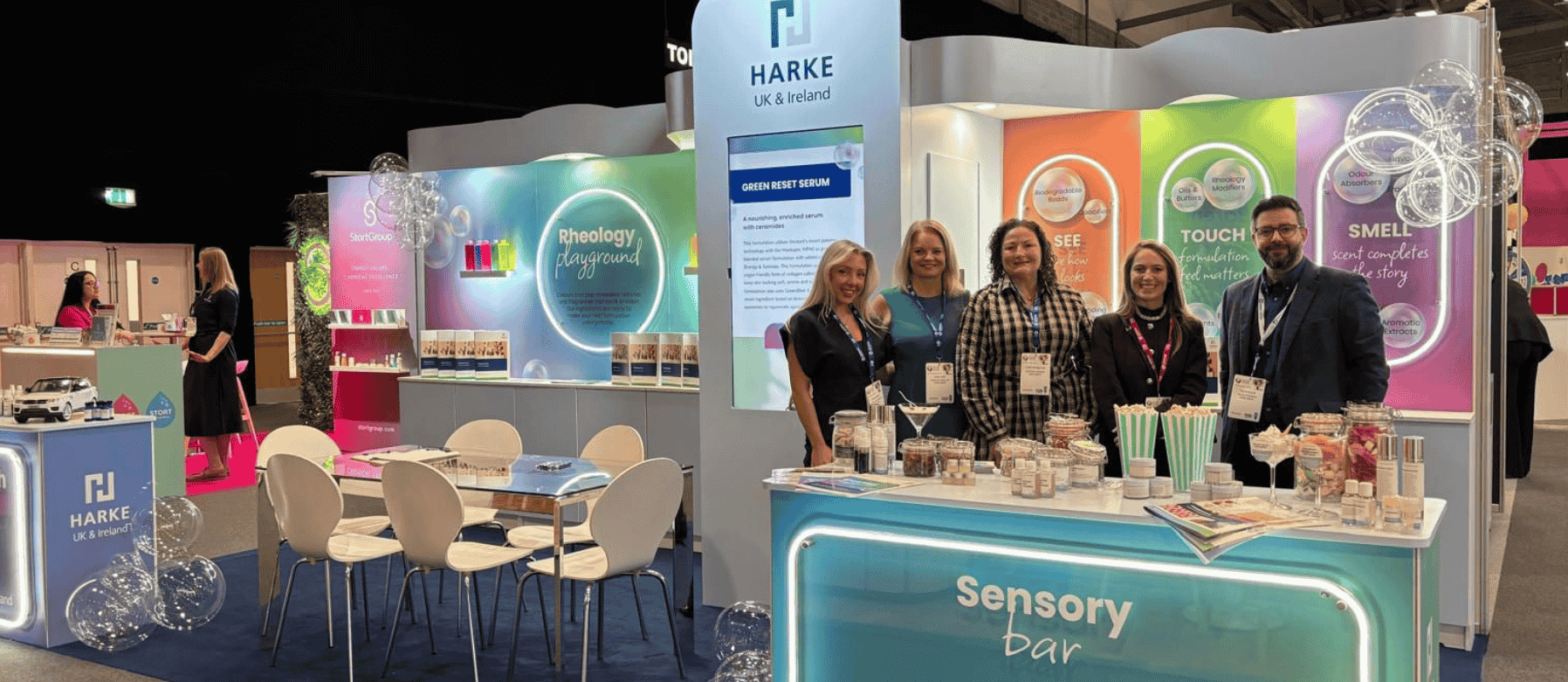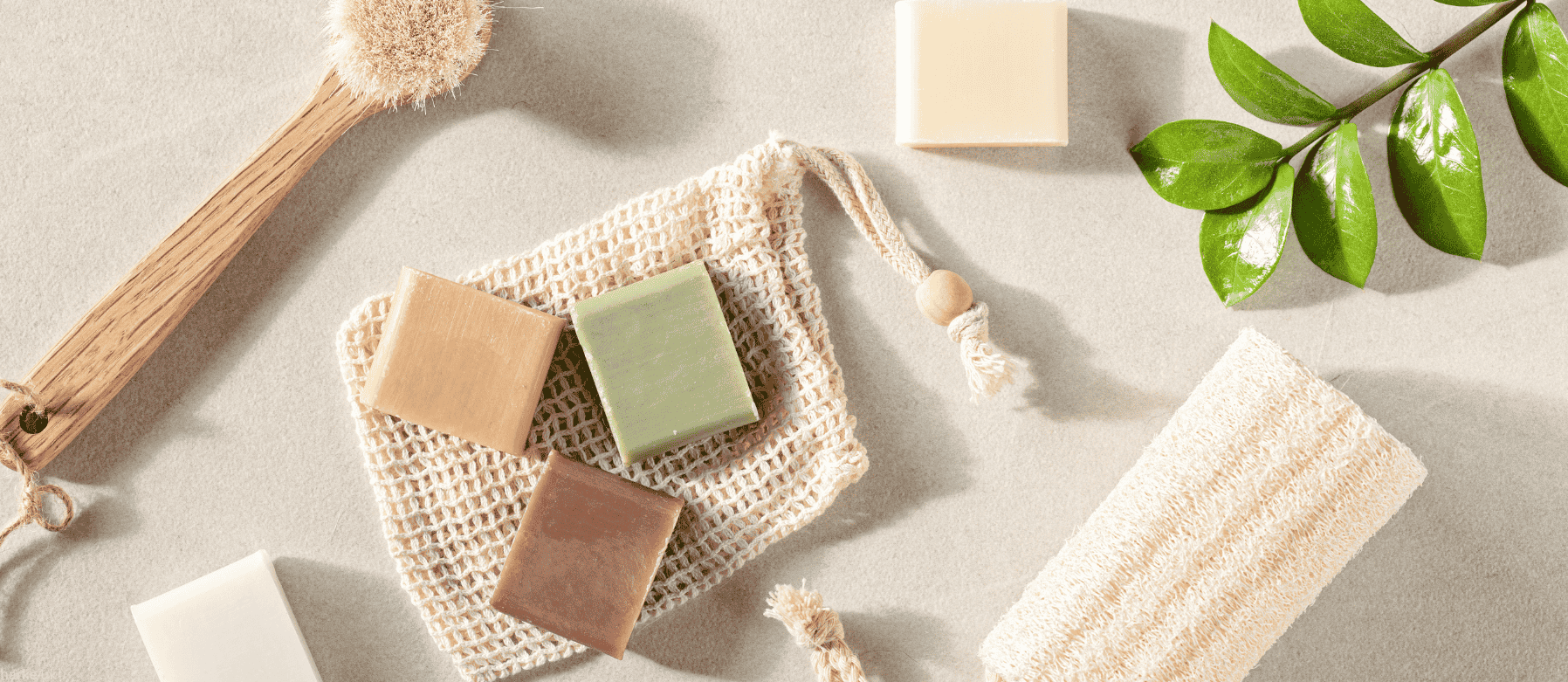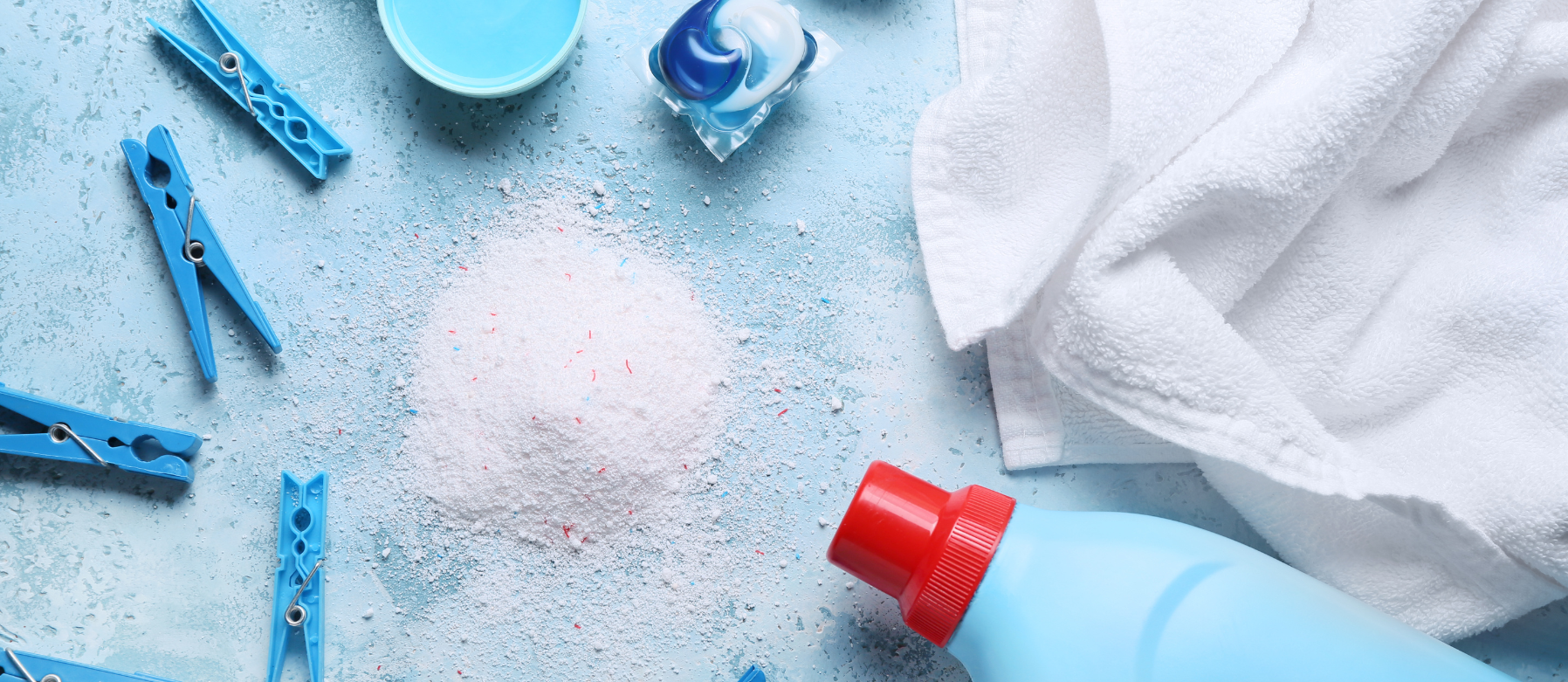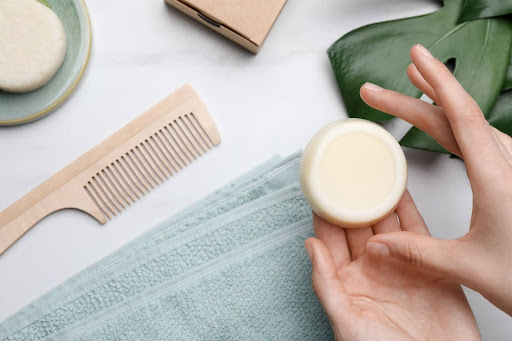We had a fantastic time at this year’s SCS Formulate exhibition in Coventry, showcasing innovative ingredients from Carrubba, LABIO, LANXESS, Sinerga, Syensqo, Verdant and more in our Rheology Playground. If you didn’t catch us, here’s a quick run-down of everything you need to know!Continue reading
Visit Us at SCS Formulate 2025
With not long to go until SCS Formulate 2025 in Coventry, we’re excited to see familiar faces, meet new people, and share some of the ingredients and innovations from our principal suppliers. Will you be there?
Continue reading
Solid Beauty Bars: Shampoo, Body Wash and Conditioning
Over recent years, solid beauty bars have become a rising trend, either as shampoo, body wash, or hair conditioner. Syndet bars have been around for some time – the most well-known in the retail market is the Dove Beauty Bar, which can be used as a conventional soap bar for both body wash and shampoo.Continue reading
Understanding EURECO™: Chemistry and Product Formats
EURECO™ PAP is chemically known as Phthalimido peroxy hexanoic acid. Contrary to popular belief, it is not a “bleach activator” but a true peroxy bleach. Find out more about EURECO™ PAP in this handy guide by Norman Lowe, Senior Technical Consultant at HARKE UK & Ireland.
EURECO™ Grades
EURECO™ PAP is available in multiple formats:
- EURECO™ LX5: 5% dispersion of PAP in water, pH-buffered with HEDPA (1,Hydroxyethylidene-1,1 Diphosphonic acid or Etidronic Acid) and thickened with Xanthan Gum
- EURECO™ LX10: 10% PAP dispersion (same formulation as LX5)
- EURECO™ LX17: 17% PAP dispersion (same formulation as LX5)
- EURECO™ RP103: Coated granular PAP (approx. 60%) for laundry powders, auto dishwash tablets, and stain-removing bleach boosters
- EURECO™ WM1: Powdered PAP, available under special arrangements
- EURECO™ HC P11: Powdered PAP/Cyclodextrin complex for oral care
- EURECO™ HC L17: 17% PAP dispersion specifically for oral care
How EURECO™ Works
In its liquid forms, EURECO™ is a suspension of PAP in water at a pH of 3.5. At this pH, PAP is insoluble and stable, yet still active.
To activate it fully, the pH must be raised. PAP becomes soluble and functions as an effective bleach and bactericide. However, it also begins to degrade in solution, making pre-mixed formulations unstable. Therefore, liquid grades must be dispensed at the point of use, primarily in industrial settings. EURECO™ RP103, as a coated granule, is stable and suited for incorporation into retail and commercial formulations like laundry powders, stain removers and auto dishwash powders/tablets.
EURECO™ Applications
1. Laundry
- EURECO™ LX5: Ideal for retail and small-scale professional settings (e.g. nursing homes) – supplied in 1L packs
- EURECO™ LX10 & EURECO™ LX17: Used in industrial laundries, dosed during wash cycles
- EURECO™ RP103: Used in retail laundry detergents and stain removers
2. Auto Dishwashing
- EURECO™ LX17: Dosed into industrial dishwashers
- EURECO™ RP103: Incorporated into household dishwashing tablets and powders
3. Surface Disinfection
- Used in spray disinfectants and wash-down products
- Effective against bacteria, fungi, and viruses
- Also functions as a deodoriser and surface bleach (EURECO™ LX5 can be used neat for kitchen/bathroom cleaning)
4. Oral Care
- Removes stains like tea, coffee, and red wine
- Two available formats:
- EURECO™ HC P11: Powdered with Cyclodextrin
- EURECO™ HC L17: 17% liquid dispersion (citric acid used instead of HEDPA)
- INCI Names:
- Powder: Phthalimido peroxy caproic acid + Cyclodextrin
- Liquid: Phthalimido peroxy caproic acid
5. Cosmetics
- Used in tooth whitening products (replaces hydrogen peroxide)
- Can potentially be used in other cosmetics (like syndets and lotions for skin care) as an anti-acne, sebum balancing and skin de-spotting agent
EURECO™ Usage Guidelines
Recommended pH Ranges
- Laundry applications: Optimal pH = 7–9. Higher pH (>9) leads to charge repulsion from fabric fibres, reducing efficacy.
- Hard surface cleaning: Acceptable pH ~11 (no fibre repulsion).
Dosage for Laundry
(EURECO™ LX17, Textile:Bath Ratio = 1:4)
| Fabric Type | Main Wash (g/kg) | Main Wash (g/L) | Rinse (g/kg) | Rinse (g/L) |
| Low Stained | 4.0–7.0 | 1.0–1.8 | 2.0–5.0 | 0.6–1.3 |
| Normal Stained | 7.0–10 | 1.7–2.5 | 5.0–8.0 | 1.2–2.1 |
| Heavily Stained | 10–16 | 2.8–4.2 | 8.0–10 | 2.1–3.2 |
Domestic Machines
(EURECO™ RP103, 9L Wash Volume)
| Staining Level | PAP (ppm) | RP103 (g/wash) |
| Normal | 100 | 1.45 |
| Heavily Stained | 200 | 2.9 |
Auto Dishwashing
- EURECO™ can replace 10–15% TAED/percarbonate systems with just ~5% RP103, reducing chemical load and inventory
Enzyme Compatibility
- EURECO™ is enzyme-friendly, with no negative effects observed
Disinfection Use Levels
- Effective at 600–1000 ppm (based on EN test protocols)
- Performs well at 30–40°C, reducing energy needs compared to >60°C for TAED/percarbonate systems
Key Benefits of EURECO™
- Non-toxic and biodegradable
- Safe for human and cosmetic use
- Registered under BPR and COSing
- Effective bleach at low temperature
- Broad-spectrum disinfectant
- Reduces textile wear and dye loss
- Compatible with enzymes
- VOC-free, chlorine-free, hydrogen peroxide-free
- Pumpable liquid and stable powder formats
- Requires fewer caustic chemicals
- Lower energy usage
Regulatory Status of EURECO™
- Listed under Biocidal Products Regulation (BPR), Article 95 (Product Types 1 & 2)
- Registered on COSing: Phthalimido peroxycaproic acid
Next Steps
EURECO™ delivers safety, sustainability, and superior performance across cleaning and cosmetic applications. For further information or specific data requests, get in touch with our experienced technical team – we’d be happy to talk to you.
Heat Transfer Fluids: Antifrogen™ Grades
Heat transfer fluids have many applications. They prevent machines from overheating, systems from freezing, and enclosed systems from corroding. These fluids are used in all types of mechanical engines, pumping systems, refrigeration and air-conditioning/heating systems, domestic and industrial heating systems, fire protection sprinkler systems, solar heating systems, undersoil heating systems (e.g., on football pitches), and geothermal heating systems.
Why Use Antifrogen™?
The most efficient heat transfer fluid would simply be water. However, water has major limitations:
- It freezes at 0°C, and as ice forms it expands (by 9% to 10%), which can break pipes in enclosed systems.
- It boils at 100°C. Applications exceeding this temperature will produce steam, creating pressure issues.
- Water is also very corrosive, which can lead to leaking metal pipes.
To solve these problems, glycols are typically used in heat transfer fluids. When blended with water in specific ratios, glycols lower the freezing point and raise the boiling point. Additionally, these blends include a highly effective anti-corrosion package that protects a wide range of metals.
At HARKE UK & Ireland, we are the agents for Clariant’s range of Antifrogen™ and Protectogen™ heat transfer fluids.
The Antifrogen™ Advantage
Antifrogen™ products are considered premium in the market. They guarantee long life and optimal efficiency, which is crucial since the systems they are used in are often very expensive. The relative low cost of the fluids helps reduce the risk of system failure and increases the time between refills, cutting operating costs.
What Sets Antifrogen™ Apart?
Antifrogen™ fluids have been developed over many years and are tested far beyond standard conditions. For example, the standard corrosion test ASTM D1384 is performed at 88°C for 336 hours. Antifrogen™ products are tested at this standard and also at extended conditions: 1000 and 3000 hours at 180°C! These tests demonstrate both thermal stability and corrosion inhibition.
Test results are available and confirm the high performance and long in-use lifespans of these fluids. Get in touch for more information.
Available Antifrogen™ Products
- Antifrogen™ N: Monoethylene glycol-based fluid for non-food applications. Working range: -35°C to 150°C.
- Antifrogen™ L: Monopropylene glycol-based solution for food and beverage applications. Working range: -25°C to 150°C.
- Antifrogen™ KF: Potassium formate-based, non-toxic fluid primarily for food industry and low-temperature applications.
- Antifrogen™ SOL HT: High-boiling glycol-based fluid specifically for solar thermal systems. Working range: -23°C to +200°C.
- Antifrogen™ GEO: Monoethylene glycol-based solution specifically for geothermal heating systems.
These products are not used neat. They are usually diluted with deionised water or, in some cases, soft mains water. Dilution levels vary by application and product type, typically between 20% to 50%.
Protectogen™ Grades
Not all systems require ultra-long lifespans or extreme performance. For these cases, Protectogen™ grades offer a more economical option. Based on similar technology as Antifrogen™ but not tested to the same extremes, these fluids are suited for less complex systems.
Available Protectogen™ Products
- Protectogen™ N ECO: Monoethylene glycol-based solution for non-food applications. Working range: approx. -50°C to +100°C.
- Protectogen™ L ECO: Monopropylene glycol-based fluid for food-related applications. Working range: approx. -50°C to +100°C.
Next Steps
HARKE UK & Ireland can supply both neat fluids in various pack sizes or ready-to-use dilutions. Comprehensive technical backup data is available to help you select the optimum product and dilution for your specific application. Get in touch today for more information – we’d love to hear from you.
Anti-Pollution Actives
Written by Sam Wood in our Technical Team
Since the dawn of the industrial revolution, pollution has become an ever-increasing issue as society has reaped the benefits of new technologies and improvements in quality of life that our ancestors could only dream of.Continue reading
Laundry Detergents: Raw Materials and Technical Expertise
There are many raw materials used in laundry detergents and various ways to formulate these products to achieve effective cleaning and aesthetic effects. This blog aims to outline what these raw materials do and how to formulate them in powder, liquid, and formats like water-soluble pods.Continue reading
Waterless and Solid Formats: The Future of Sustainable Personal Care Ingredients
There is a major trend in both the cosmetic and detergent industries to move towards concentrated formats. This shift is important from a sustainability perspective, as it reduces packaging size, cuts down on single-use plastics, lowers transportation costs, and minimises chemical overuse through unit dosing.Continue reading
Comprehensive Solutions for Oral Care Products
In today’s competitive cosmetic oral care market, brands are continually innovating to meet consumer demand for effective, aesthetically pleasing products. At HARKE UK and Ireland, we offer an extensive range of high-quality ingredients tailored to the needs of oral care formulators. Continue reading
Enhance Snow Foam Formulations with These Standout Ingredients
Snow foams have gained popularity not only in automotive detailing but also in various industries requiring effective cleaning solutions. Their ability to cling to surfaces and encapsulate dirt makes them a favourite among enthusiasts and professionals alike.










